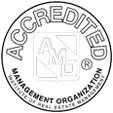Shared Success

As a member of the Retail Brokers Network (RBN), Southpace found this article that originally appeared in the May 2013 Shopping Center Business issue particularly interesting. We’ll be at the RBN booth at RECon Las Vegas next week. Be sure stop by and see us at C111 Union Street if you’re attending this year’s show.
The Retail Brokers Network is expanding to international locations. Its growth story has been inspired by an unusual internal culture.
Interview by Randall Shearin
The recession brought a swift change to the commercial real estate brokerage business. Many larger firms’ brokers jumped ship for greener pastures. For independent brokers, it was a time to shine. The end of the recession brought more business their way as some larger brokerages struggled to regain the knowledge that they lost in some markets.
For the Retail Brokers Network (RBN), the recession was a time to grow. The network of independently owned brokerage firms has grown dramatically over the past five years. The network now has more than 75 offices across the country and in Canada and is expanding to other international locations.
Shopping Center Business recently spoke to Keith Lord, outgoing president of RBN and president of Chicago-based The Lord Companies; Chuck Lanyard, incoming president of RBN and president of The Goldstein Group; Matthew May, who is a leader of the network’s investment sales council and who is president of May Realty Advisors; and Ed Ginn, also a leader of the investment sales council and president of Equity Retail Brokers.
SCB: How has RBN grown?
Lord: We started in 1992. RBN was started by several members who left another network. They put together a group of brokers with a very different culture. We are a group of individual owners; We are not just brokers. We are businesspeople who look at the retail industry differently for that reason. Just over two years ago, we had 40 offices. We have more than 75 right now. The last two years have been some of the toughest for the retail industry. A lot of other brokerage groups have stayed stagnant. We have had monumental growth in terms of number of offices, brokers and transactions. We are approaching 800 brokers and professionals in our organization. We are in 40 states and four countries. Each office is independently owned; this is a principal-driven versus a managed-driven organization. Many of our members are not just brokers, we are also developers and retail real estate owners. That brings a tremendous amount of additional information and value to a client.
SCB: Your structure is also different.
Lord: Our structure is simple: we have a president and an executive board of approximately 15 people. We have a board of directors, which are ex-executive board members. We are divided into five regions — four in the U.S. and one international. We are also divided by discipline; we have a big-box tenant council, a restaurant council and an investment sales council. Each council and region gets together on a conference call every month and discusses changes in tenants and in the industry. Since each office is totally independent, this is a good way to share information. Our culture is defined by three words: know, like and trust. Within RBN, we have to know each other, like each other and trust each other. Whereas the brokerage business is known for creating a culture of internal competition, we go completely in the other direction. We have an internal culture of helping each other. It makes our organization stronger. Success is measured by the sharing and client satisfaction.
May: I’ve been in the network for 17 years, and there have been longstanding relationships created in that time. That has created the know, like and trust motto we have here.
SCB: How do you facilitate the conversation between members/brokers?
Lord: To be a good member of this organization, you must be a participant in it. We issue a one-year invitation. If you ask to join us, we do a lot of due diligence on the company and its owner. We want to make sure the culture and people are a good fit. Then, if RBN invites you to cover a certain area, it is a one-year invitation. If you don’t contribute, we rescind that invitation. We just had our Midwest council call this morning and every office in the Midwest was on that call.
Lanyard: We have an institutional level of service with an entrepreneurial flexibility. What I have found as a member, is that compared to going through a clearinghouse, we have direct, one-on-one contact between the members. Even though I’m in New Jersey, I can call an office in Indiana or Florida, and know that I can service a client properly because I have a local person who is on top of the market. More importantly, I’m able to get back to my client within the hour.
May: There is a formal executive committee, but it is all volunteer. The approach was done that way because we didn’t want a financial tie to participate. We are not paying back a percent to support a large organizational structure. Every office negotiates how they are going to share on a deal-by-deal basis.
Lanyard: Because of that type of relationship, we are able to deal with that brokerage firm without going through a process. RBN is made up of many boutique firms; my firm has about 25 brokers, for instance. When you have these types of smaller firms in an area, it creates concentrated knowledge and assistance. We also have large brokerages too, like Weitzman/Cencor in Texas. We have a lot of dominant firms in a market as members. For instance, if you go to Kansas City, Block & Co. is our member there. If you are a retailer and you are going to Kansas City, you are more than likely going to have to deal with them. Similar with Stirling Properties in New Orleans; they have five offices along the Gulf Coast. In Canada, Rocket Retail is our member and they have four offices from coast-to-coast.
May: Over 80 percent of all retail transactions in the U.S. are done by boutique brokerage firms. Our clients are drawn to our institutional level of service with an entrepreneurial approach.
SCB: You are debuting a new booth at ICSC RECon this year that will show off your large network, but your members are also very active in ICSC. What is your reach in the organization?
Lord: We attend about 30 ICSC events per year, plus two international ICSC shows per year. Among our members, we have 28 who hold an office in ICSC, from state chairs to government relations to NextGen to program officers. Chuck [Lanyard] was the planning chairman for the ICSC New York Dealmaking in 2010 and has been on the committee for that for many years. Frank Zuckerbrot, a member on Long Island, will be the chairman for the New York show in 2014. We have a very strong tie-in with ICSC across the country. We think that is important since it shows leadership in the industry.
SCB: How many deals do RBN members have in a year?
Lord: We have executed 7,500 leases over the last two years, representing about 22 million square feet and $4.5 billion in lease value. Our members have handled more than 1,400 sales transactions in the past two years, representing about 20 million square feet and $1.2 billion in value. Our members manage over 1,400 properties nationwide, encompassing 80 million square feet. Our last count showed us approaching 800 brokers in the U.S.
SCB: Why do you think many firms chose now to gravitate toward joining RBN?
Lord: When you get into a tough economy, and a tough industry segment, every company that is intelligent is going to re-evaluate their team members and their networks around them. How strong is that network and what does it provide? The recession was a tremendous opportunity for RBN to show its strengths. Our network members who were active five years ago realized how important RBN was to their business. They stepped up to the plate and became more active. The other side of our growth is companies who have joined understanding our culture and the family concept. They’ve really reached out and helped each other. Some companies realized we were a better possibility than having no network or the network that they were in. That has led to a lot of growth.
Lanyard: In addition to companies calling us, we have made it a priority to target certain member firms that we wanted. Some members we have courted for two to four years before they joined. Stirling Properties in New Orleans and Edgemark in Chicago were two examples of firms that we sought to join the network.
Lord: There are some additional markets we will be adding, such as Hawaii. We are also taking a hard look at the new oil states — the Dakotas — to see how we can cover that over the next two years. That market didn’t exist three years ago.
SCB: Why is international expansion important to the organization?
Lord: If you look at some of the larger tenants that we have, like McDonalds and Starbucks, most of their growth has been internationally. That makes it important for us to understand what tenants are doing internationally, and where their focus is. As well, we need to know who is entering the United States from other countries. There are a number of Japanese retailers, for instance, who are entering U.S. markets. There is a coffee company from Italy; there are clothing lines from France, Spain and Asia. One of the hottest concepts — Lululemon — is from Canada.
SCB: How does the network help your clients?
May: The RBN investment network provides our clients access to and the benefits of the largest retail-centric organization in the country. As business owners, we understand the term “fiduciary obligation” and how it translates to the investment sales process. The decision to invest millions of dollars requires more than just a simple brochure and an email blast. Our ability to secure and convey why a retailer selected the particular location, the sales-to-rent ratio, potential changes in a retailer’s operations as well as competing product both for lease and sales is imperative when buying or selling a retail property. In addition, we are committed to educating our clients on the comparative financial trends and ratios for both individual tenants and among sectors. This information allows us to uncover opportunities to acquire undervalued retailers based upon their relative risk to return ratio (cap rate/ default risk). We call this the Components of Value. This approach is driving our growth from the client side and in turn attracts more brokerage firms.
Lord: Our restaurant council really delves into the trends. They talk closely about consumer trends and cultural trends. Why are restaurants changing? Why is the middle market restaurant not performing? It is a tremendous benefit because we disseminate our information on these internal calls. We educate each other, and that helps us educate our clients.
SCB: How do broker relationships help you on the investment sales side?
May: In addition to providing our clients with street-level and real market knowledge, our personal relationships across the country provide our clients with the ability to secure investment deals ahead of time and provide insights on retailer trends. I received a call from an affiliate whose client will have over 100 deals coming to market in the next two years. Our respective clients can secure off market deals while the developer can secure funds for the development or lock in his profit at time of completion. The cooperative and synergistic nature of members affords RBN what we believe to be the largest qualified distribution network. More importantly, it provides the personal relationships, which in the end are what closes a transaction.
Lord: My office would not have had our two biggest deals last year without RBN. One was an Ohio-based bank that hired to us to liquidate a retail site in St. Louis. Without the affiliate in St. Louis, I would have never gotten the listing. Our second largest deal was from a Chicago-based bank to sell a note for a large Price Chopper-anchored center in Kansas City. The property had been on the market for a year when we got the assignment. With the help of Block & Co., we sold it in 60 days at a price that the bank wanted.
SCB: How does the organization create and achieve goals?
Lanyard: The presidents of RBN have had a lot on their plates the last few years. The executive committee does a lot of heavy lifting. What we’ve said to the presidents is: pick two or three initiatives that we want to accomplish and what will help the member companies grow. We try to pick areas that need improvement, but that will also help the president’s company as well as other members. The burden of being president shouldn’t be a burden on his company. Bob Young, of Weitzman, was president of RBN before Keith [Lord]. We asked him to grow the West Coast. During his tenure, we added six or seven offices in the West. That also helped The Weitzman Group because of their presence in Texas.
Lord: One of my goals was to get a second office in Chicago. We recruited Edgemark to help in the suburbs. I also wanted to grow the councils so that the network would grow together through more communication. The trade of information between our member firms has grown significantly in the past two years. We are also starting to brand more as we get more of a national presence. Our new ICSC booth is part of that.
Lanyard: My predecessors have done such a great job in building RBN that I feel like I have a great position. RBN can catch its breath and concentrate on our relationships and our strength.We are making a concerted effort to convey to the industry at large the mutual benefits, for all parties, of working with RBN. We are also conveying what a powerful force we’ve become for the retail brokerage industry, and, more importantly, for our clients.
This article originally appeared in Shopping Center Business, May 2013. ©2013 France Media, Inc. www.shoppingcenterbusiness.com







